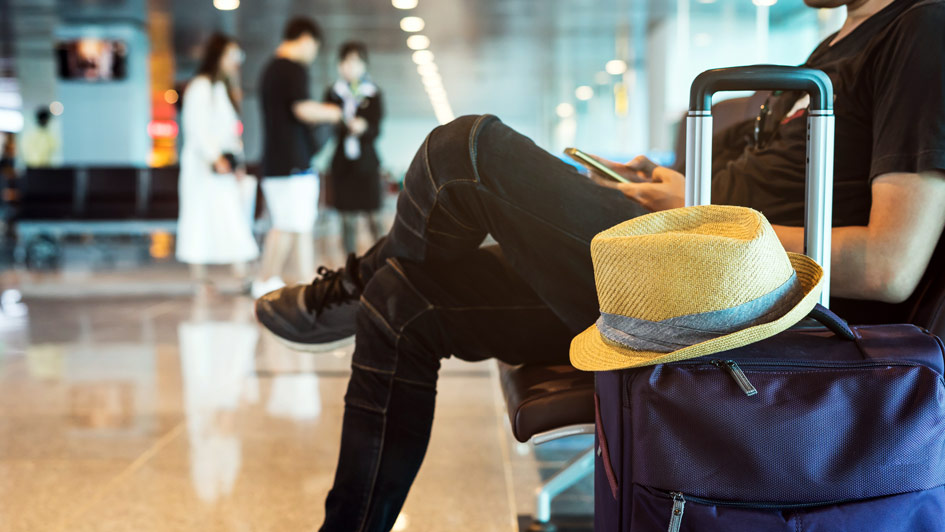
From a relaxing vacation or an extended trip for work, leaving home means making plans for your heating and cooling system. You won’t be using it as long as you’re not home, so you can adjust it as appropriate to minimize your energy use. At the same time, you don’t want to just turn it off for the entire time you're out of the house.
Instead, it’s better to leave your HVAC system on and just make adjustments depending on the time of year. That way you can lower energy costs without stressing about getting back to an uncomfortable home. We’ll explain why you shouldn’t turn your HVAC system off as well as the most energy-efficient thermostat settings for summer and winter.
This Is Why You Avoid Leaving Your Thermostat Alone
While you may be tempted to leave your HVAC system off before a trip, this could end up leading to big problems by the time you come back. This is especially true when the weather will be severely hot or cold while you’re gone.
As an example, turning the HVAC system down in the summer will sometimes produce very high humidity. Not only will your home feel muggy and uncomfortable when you return, but it could have also invited mold/mildew growth or pest infestations.
And in the winter, leaving the furnace off can lead to pipes freezing or even bursting. It’s exhausting to come home from a long trip only to come across substantial water damage close to a broken pipe.
Energy-Efficient Thermostat Settings While at Work
You can optimize the temperature even if you’re coming and going to work. Since you’re not home for around 8 hours or so, it doesn’t make sense to keep an empty home the same temperature as when you're home. As a general rule, it’s suggested to raise the thermostat by 5 degrees or more. That means that if you prefer a comfortable 72 degrees, consider adjusting it to 76-77 while you’re at work.
But you may save even more if you're open to further adjusting the temperature. As stated by the Department of Energy, you could save about 10% on your HVAC expenses by raising the temperature by about 7-10 degrees.
Ideal Thermostat Settings While on a Trip in Summer
If you leave for a lengthier trip in the hottest part of summer, you can make larger adjustments. This prevents wasting energy while still defending your home from the issues that come with leaving it un-air conditioned. Around 5 degrees is suitable for shorter trips while a larger adjustment of 10 degrees is best if you’ll be out of town for 2 weeks or more. If you enjoy keeping the house at 72 in the summer, 78-82 should offer the best results.
Best Thermostat Settings While on Vacation in Winter
To try and find the most energy-efficient thermostat setting for a winter getaway, consider lowering the temperature by the same amount you would adjust it in summer. 68 is a popular winter thermostat setting, so adjusting to 63-58 will prevent ice from forming on pipes while minimizing how often your furnace operates.
A Smart Thermostat Can Help: Advantages of Smart Thermostat Installation
A great way to manage your home’s HVAC system while out of the house is using a smart thermostat. This innovative type of programmable thermostat utilizes intelligent software to monitor your usual comfort habits. It gradually understands these preferences and makes automatic adjustments to the schedule for maximum energy efficiency. And with Wi-Fi connectivity, you can remotely adjust your HVAC system using a smart device like a phone or tablet.
Smart thermostats are packed with features to help you save on your energy bill. For instance, specific models can observe electricity prices to bolster heating or cooling when prices are more affordable. They are compatible with high-efficiency, variable-speed equipment to optimize how long your HVAC system needs to run. It’s the ideal tool to streamline how you control your comfort system. If you’re thinking about investing in a smart thermostat, there are a variety of ways you can lower your costs, effectively getting a smart thermostat for free. The next time you leave for vacation, you can appreciate true peace of mind that your HVAC system won’t cause any trouble while you’re away from home.











